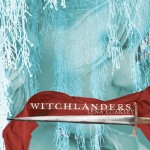 A number of people have been asking me how I got my literary agent, and it occurred to me that I have amassed quite a bit of knowledge about how to find the right representation. In upcoming posts, I’ll tell you about how I went about my agent search, but for today I thought I’d start by posting about that all-important query.
A number of people have been asking me how I got my literary agent, and it occurred to me that I have amassed quite a bit of knowledge about how to find the right representation. In upcoming posts, I’ll tell you about how I went about my agent search, but for today I thought I’d start by posting about that all-important query.
A query is a single-page letter introducing you and your book. If you have finished a novel and plan to search for either an agent or a publisher, you are probably going to have to write one. I won’t lie: It’s a daunting task. Agents and editors see many, many queries in a day, and you’ve only got about 400 words to catch their attentions.
There are many good “How to Write a Query” posts out there on other blogs (like this one and this series), so I thought I’d do something a little different. I’m going to reveal the ACTUAL QUERY I used for Witchlanders (below, in black) and use it to illustrate a few things that I think a good query ought to have (in red).
Please note! This is not a perfect query by any means, but it is one that worked. I found that well over half the agents I approached asked to read the manuscript (or at least a part of it), which I think is a pretty good percentage. Keep in mind, though, I had done my research and was only querying agents who were interested in YA fantasy.
I sent most of my queries by email (after checking to be sure that the agent accepted email queries, of course!) and I usually pasted one page of the manuscript afterwards, in the body of the email, unless specifically asked not to on the agent’s website. Eventually, my little query caught the eye of Steven Malk of Writers House, and the rest is history!
Dear Mr. Malk:
Be professional. Even if you are querying by email, don’t think that you can be chummy and informal. This is still a business letter. I attended an SCBWI lecture with agent Stephen Barbara where he railed against email queries that didn’t have a colon in the greeting. I was amazed! Not having worked very much in the business world, I had assumed colons had gone out with the dodo. Not so. Everything Mrs. Gonya taught you about business letters in eighth grade still applies. And no typos, please!
I have recently completed a YA novel, currently titled WITCHLANDERS, and am now seeking representation. It is a 70,000-word fantasy, which I hope will appeal to readers of the books I love myself, such as Airborn, Sabriel and Across the Nightingale Floor.
Being as succinct as possible, you want to tell the agent:
-that the novel is complete. (If it isn’t, you have no business querying.)
-how long it is
-what genre it is
I’ve read some blogs that discourage authors from comparing their manuscript to other books. I thought that mentioning the titles above was a quick way to get across more information about my book and how it might fit into the market. (Like Witchlanders, all the titles I listed are richly layered fantasies, heavy on worldbuilding.) I also knew that Steven represented Kenneth Oppel, the author of Airborn, so there was a little flattery going on there. (Honest flattery, though—Airborn really is a favorite of mine.)
In WITCHLANDERS, seventeen-year-old Ryder is struggling with his father’s recent death and with his mother’s addiction to maiden’s woe, a river flower that she believes can help her predict the future. When hideous creatures made of earth and debris swell up out of the ground and attack Ryder’s village, it appears that his mother’s terrible visions of the future have come true. Spurred by guilt that he didn’t heed her warnings, Ryder sets out to discover who created such a powerful magic, but to do so he must delve into secrets many people would like him to leave alone: secrets about a war that was fought before he was born, secrets about the witches’ coven where his mother grew up, and secrets about his own linked history with a mysterious enemy called the Baen.
Oh, this is the hard part: The pitch. Less than a synopsis, more than a book-jacket teaser, the pitch is what will take you the most time when writing your query. It should tell the reader three things: who the main character is, what he wants (or what his quest is), and what the conflict is.
But your pitch needs to do one more ineffable thing: It needs to hook the agent. It needs to sound fresh and exciting to a person who reads queries for a living. If you’ve gone the same route I did and compared your manuscript to other books, now is the time to get across how your book ISN’T like those others. How is it unique? What will make people buy it instead of a thousand other books in this overcrowded market?
It’s a good idea to write a pitch that mirrors the tone of your book: if your book is light and funny, try to write a light and funny pitch.
Does getting all this across in so few words sound impossible? The great news is that you can get pitches critiqued online by other writers. If you haven’t joined the Verla Kay community yet, think about doing it now. Verla has a section for registered members called “Queries and Critique Requests,” where you can get feedback.
WITCHLANDERS has already received some very positive feedback. The Toronto Arts Council awarded me a $7,500 grant to complete this novel based on the first 40 pages. When two chapters were critiqued at a recent SCBWI conference in LA, the manuscript was deemed worthy of consideration for the Sue Alexander Award.
I am a duel US and Canadian citizen living in Toronto. I have previously published two well-reviewed picture books with Canadian publisher, Orca Book Publishers, as well as a few YA short stories in educational anthologies. Two of my short stories for adults have won second prize in the Toronto Star’s very popular Sunday Star Short Story Contest.
Don’t worry too much about your credentials. If you don’t have any, you don’t have any, and you may simply omit these paragraphs. Don’t pad your query by including irrelevant information about yourself. (If you are wondering why I included the information about being a duel citizen, I thought it might be relevant to my being eligible for awards on both sides of the border.)
I am looking for an agent who shares my love of YA fantasy and was drawn to you because of your stellar reputation among YA and children’s authors. I have pasted the first page of my novel below.
Here’s where I think I could have done a little better. Agents would like to know why you are querying themin particular and “your stellar reputation…” is a little generic. Why I didn’t mention that Kenneth Oppel was one of my favourite authors when I knew Steven represented him I can no longer remember. As I said, this was not a perfect query.
Thank you so much for your time.
Don’t forget to say thank you!
Yours truly,
Lena Coakley
17 Comments
Trackbacks/Pingbacks
- Query queries. « Vicki Grant - [...] kindly shared her insights on writing effective query letters. Here’s her very helpful post, A Query Dissected.…




 Hi! I'm Lena, a young adult fantasy author from Toronto.
Hi! I'm Lena, a young adult fantasy author from Toronto.
Thank you so much for sharing this, Lena. I’ll be ready for this step very soon and your post was helpful. I look forward to browsing your site and getting my hands on a copy of Witchlanders.
Congratulations on your successes!
Denise
BTW–I hope your arm is OK.
Hi Denise! So glad this was helpful and best of luck when you start querying! The arm is broken, unfortunately, but it was a clean break and I suppose it could be worse. I’m already feeling much better now that I’ve got a cast on. Thanks for asking!
This is the best query advice I’ve ever seen, and believe me, I’ve looked at most of what’s out there. Thanks for sharing your letter, Lena.
Wow! That’s very flattering, Jocelyn! Thank you!
Thanks so much for sharing this, Lena. I feel like there’s only so much you can learn from how-to articles. Actually seeing an example is priceless.
That’s what I thought, too! When I was querying what I really wanted to see was queries that had worked. Glad you found it helpful!
Thanks for this. I have been gearing up to start resubmitting some of my writing and this gave me some good ideas. My mom says hi!
Hi Kirk! Thanks for stopping by and best of luck with your submissions! Hi to Marilyn!
Six paragraphs and this fits on one page? Silly question? but did you include the mailing address of the agent in the letter? Those four extra lines cost space and make me spill over to another page in a snail mail letter.
I think it would fit on a page single spaced, but since I sent an email query without the date and headings, I’m actually not sure. When sending snail mail, you definitely have to include those things. I don’t include them for an email query, though. I’d really think about cutting to keep it to a page. Best of luck, Sylvia!
Thank you for this, Lena. It is soooo helpful to see an actual example of what worked plus the explanations about why you did it that way.
Hi Rebecca! So glad you found it helpful!
Great tips here. I couldn’t agree more about writing the synopsis in the same voice as your manuscript. That was the best advice I got and it made all the difference. Once I fixed that, I started getting full requests and ultimately signed with my agent.
Interesting, Kelly. I’ll have to remember to make a point of mentioning that when people ask for advice. Thanks for stopping by!
I can’t tell you how much we fellow writers appreciate when agented authors publish their queries like this! It really helps us all!
I’m so glad to hear that, Sophia! 🙂
Well I finished your book and I was wondering is there going to be a second book?